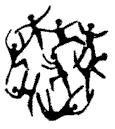
The University of South Africa currently has an honours course in community psychology and we're planning two new undergraduate modules. Below is a first draft outline of the new modules.

|
Community psychology at Unisa The University of South Africa currently has an honours course in community psychology and we're planning two new undergraduate modules. Below is a first draft outline of the new modules. |
Students will draw simultaneously on two sources of knowledge: Practical community experience (e.g., visiting projects, observing, participating in activities) and structured reading (of academic and literary texts). We will facilitate the linking of these two sources of knowledge by providing structured reflective exercises such as diarising and mapping. Assessment will focus on students' ability to narrate their community experience in terms of academic understandings of community psychology.
Practical: Collecting information about a community, doing a visual survey, visiting a range of programmes, talking to key people.
Reading: 1) A novel (probably from a list provided by us) or a diary (e.g., of young people in Soweto). 2) Academic texts (e.g., journal articles or book chapters) on the principles, history and models of community psychology, mapping techniques (e.g., rapid rural appraisal) and networking.
Reflective exercises: Keeping a structured diary, doing a family tree-type exercise, drawing a map, writing an analytic report on a community and the projects active in the community (perhaps classifying them in terms of standard typologies of community psychology). The mapping exercise may be repeated at different points in the student's development and with different instructions. Depending on how we decide to structure the various mapping exercises student productions could range from artistic, organic creations to formal epidemiological maps. Students could also be required to participate in collaborative mapping exercises with others in the community. We may set up structures for sharing maps with other students - e.g., via the web and live exhibitions.
Skills: Observational, descriptive and analytic skills as they relate to whole communities. Networking.
Practical: Students either to join one of the organisations contacted in module 1 or to start a new initiative of their own.
Reading: 1) A novel or diary (probably from a list provided by us). 2) Academic texts including case studies of community interventions, academic ideological 'colonising' of communities, NGO and other organisational politics, networking, the practicalities and politics of volunteerism and programme evaluation.
Reflective exercises: Keeping a structured diary, various organisational 'diagnostic' exercises (e.g., a swot analysis), stakeholder analysis.
Skills: Sensitivity to the politics of community intervention, including insider-outsider tensions and paradoxes such as the need for and dangers of individual ambition and drive. Ability to account for own motivations relative to that of the organisation and community.
Back to Critical Community Psychology Page